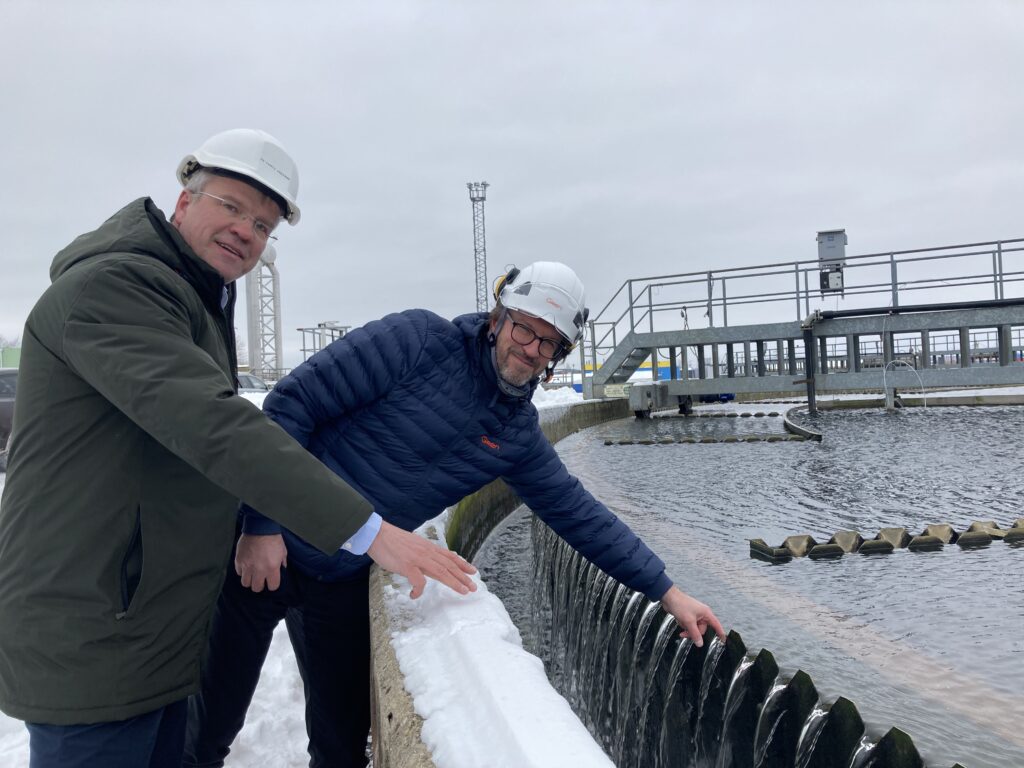Gren and Tartu Veevärk to commence studies for producing heat from wastewater
The energy company Gren and water company Tartu Veevärk have entered into a cooperation agreement to commence studies for utilizing wastewater heat in Tartu’s district heating system. According to Gren’s estimate, the required investment will range from 10 to 15 million euros, with results expected in 2-3 years.
“Collecting waste heat is an opportunity to alleviate the environmental impact of district heating. The more we can use heat that already exists, the less we need to produce heat from other energy resources,” explains Margo Külaots, Gren’s Country Manager for Estonia. “The temperature of the wastewater collected by Tartu Veevärk from citizens is between 10-17 degrees. Currently, this thermal energy is, figuratively put, going down the drain, but with the help of heat exchangers and heat pumps, the energy can be extracted from wastewater and directed into the district heating system.”
Wastewater heat is used for heating cities in numerous European countries, but it has not been practiced yet in Estonia. According to Gren’s estimate, wastewater would comprise a valuable source of extra heat in the winter period: Tartu’s wastewater could be used for collecting thermal energy in a volume covering 5-8% of the annual heating needs of the entire city. A precise study along with a cost-benefit analysis will be conducted this year in cooperation with Tartu Veevärk.

“We are always looking for new opportunities to improve Tartu’s water services. This means that saving and reusing energy is important for us, and the development of renewable energy production aligns with this principle. Wastewater sediment has been used in Tartu for producing electricity and heat for around ten years,” said Toomas Kapp, Manager of Tartu Veevärk. “Wastewater mainly consists of warm water that has been used in households and by businesses. The usage of this energy depends on technical solutions and feasibility. Based on initial assessment, the calorific potential of Tartu’s wastewater is sufficient to study how to exploit its value. Gren, Tartu Veevärk, and the City of Tartu will take a major step towards environmentally friendly management if the plan is successfully implemented.”
Gren holds the opinion that using heat from effluent and wastewater has excellent potential in terms of both saving energy and decarbonization. Waste heat from different sources is already collected and used in district heating today. For example, Gren uses industrial waste heat for heating the Jõhvi and Kohtla-Järve regions.
“By now, the level of using renewable resources for Gren’s Tartu heating network is approximately 95%, and our next target is to burn less fuels in general for heat generation. The advantage of a large district heating system is because various industrial solutions and renewable energy sources can be added to the system. Using them locally is either not possible or too expensive,” explains Margo Külaots. “Combined with the heat storage we have already implemented, we can collect the kind of energy that is the cheapest, cleanest, and most accessible at any given time. This provides a more diverse selection of different energy sources for heating the city, which in turn ensures a higher degree of security of supply and resilience to crisis situations.”
